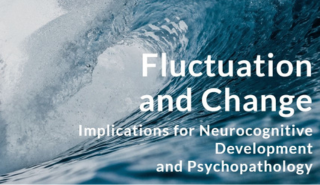Exploring psychological components of thought and behaviour
06 July 2023

The annual Reading Emotions inter-disciplinary affective neuroscience meeting, recently took place at the University of Reading. Held in a hybrid format, this year’s symposium brought together more than 200 researchers from across the globe, at all stages of their careers, including PhD and postdoctoral students, to share insights and advancements in the field of human neuroscience.
This year’s Reading Emotions explored how we measure and understand the fluctuations in neural and psychological components of thought and behaviour, across development and through the course of disorder.
The programme was anchored around a series of stimulating keynote lectures delivered by world-leading academics, who delved into central themes and the latest developments in psychological theory, methods, and application. The lineup of invited speakers included Jessica Agnew-Blais’ (University College London), Eiko Fried’s (Leiden University), Anne-Lise Goddings (UCL Great Ormond Street Institute of Child Health), Rogier Kievit (Donders Institute, Nijmegen), David Lydon-Staley (University of Pennsylvania), Argyris Stringaris (University College London), and Patrik Vuilleumier (University of Geneva). They covered a range of topics, including variation in the lifespan course of disorders such as Attention Deficit Hyperactivity Disorder (ADHD) and depression, treating mental health disorders not as labels but as complex systems that evolve over time, using the right experimental and analytical tools to study the complex timecourse of healthy and disordered processes.
In addition to the keynote lectures, early career researchers took the stage to showcase their work. These ECR short talks included key topics such as relationships between mood and social interactions in adolescent school-based social networks and changes and fluctuations in psychological states during exposure to pain.
Recognising the importance of practical training, the symposium also addressed the empirical and analytical challenges associated with fluctuations and changes in neural and psychological processes. These workshop sessions oriented participants to the necessary tools and methodologies to investigate these complex issues, and fostered collaboration and networking.
Professor in the School of Psychology and Clinical Language Sciences at the University of Reading and Chair of the symposium, Anastasia Christakou, said:
“Reading Emotions 2023 brought together a diverse group of researchers and practitioners to explore the challenge of studying neural and psychological fluctuations in thought and behaviour. As the field continues to evolve, the symposium brought together innovative ideas and transformative practice in this domain. It is exciting to think about the new insights that this way of working can bring to emotional and cognitive research.”
Reading Emotions is a research interest group, bringing together affective neuroscientists and researchers in psychopathology at the University of Reading, and our collaborators in the UK and internationally.

